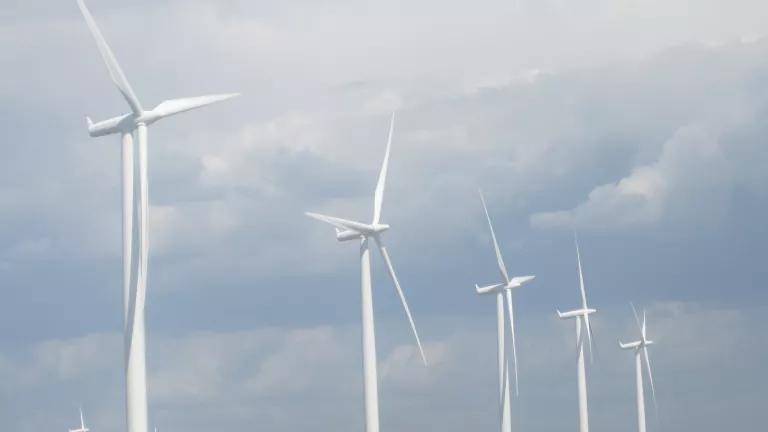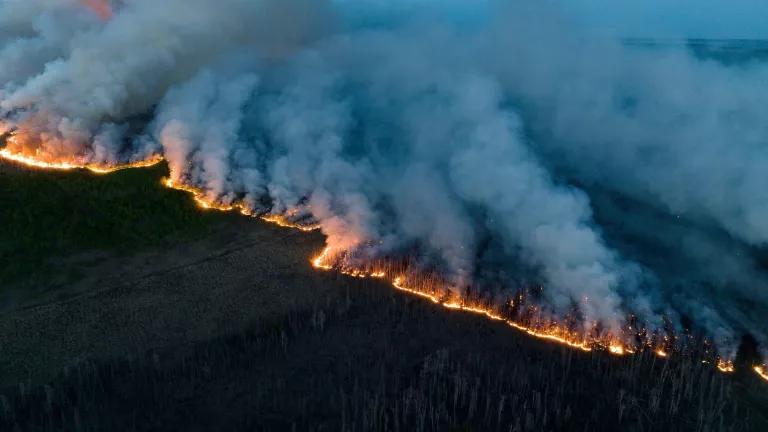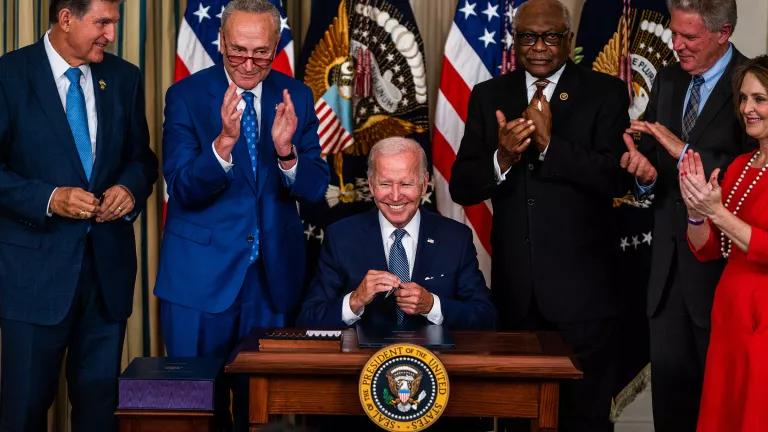The Undeniable, Commonsense Response to Harvey

We must fight climate change today in order to protect people from such disasters tomorrow.
As the winds raged and the floodwaters rose in Houston and other Gulf Coast cities last week, the nation rightly focused on the human catastrophe—the lives lost, homes destroyed, and futures upended. In the hard weeks, months, and years to come, we’ll need a national response to assist community-led recovery and rebuilding efforts in effective, sustainable, and equitable ways.
A vital part of our collective response will be to listen to the voices across the country insisting that this tragedy is part of the price we’re all paying for global climate change.
Equally important is that we recognize the ways climate change has already set the table for more such disasters, requiring us to make our coastal communities more resilient and better prepared to deal with the consequences. That means, among other things, relocating or elevating hospitals and critical equipment in areas susceptible to flooding; designing stormwater systems to more effectively cope with rising waters; and helping move damaged and ruined homes from flood-prone parcels to higher ground rather than rebuilding on vulnerable areas.
Like a growing majority of Americans, I want us to do more, as a country, to protect current and future generations from the mounting dangers of this widening scourge. We see the damage spreading every day, with croplands turning to desert, wildfires threatening more and more of the West, coral reefs on the brink of collapse, and the worst mass extinction in millions of years picking up speed.
The inescapable fact is, we must fight climate change today to protect our people from even greater suffering tomorrow. Our fate, in Houston as everywhere else, is bound up in the health of the planet.
Hurricane season always brings risk to America’s coasts. And now climate change is making storms more dangerous. Climate scientists will analyze what made Harvey so devastating, but at least three components will be on the prime suspect list.
First, Harvey brewed over the Gulf of Mexico’s waters, ranging between 2.5 and 7 degrees Fahrenheit warmer than the long-term average. It takes a lot of heat to warm an ocean. That heat pumped more energy into the gathering storm, increasing Harvey’s power when it hit.
Secondly, the added warmth also increased evaporation over those waters, putting additional moisture in the air. That gave Harvey more water to dump as rain than it would have otherwise.
Finally, sea level is rising nearly two inches per decade along the Texas Gulf Coast due to global warming and sinking land. This opens the gates to greater coastal flooding and makes it harder for floodwaters to drain back toward the ocean.
The fossil fuel pollution that’s driving global climate change is making weather disasters more destructive. Going forward, we need to cut our reliance on these dangerous fuels to prevent future storms and other climate hazards from becoming ever more catastrophic.
That’s not a political statement. It’s common sense.

And it’s exactly why NRDC and other groups are working so hard for policies that help to speed the shift away from the fuels of the industrial revolution and toward cleaner, smarter ways to power our future, create good jobs, and protect our people.
We’re making enormous progress.
We’ve cut our carbon footprint in this country 14 percent since 2005 while our economy has grown more than 17 percent. We’ve slashed our energy use 60 percent over the past 45 years, as a share of economic output, by making our cars, homes, and workplaces more efficient. We’re building some of the best all-electric and hybrid vehicles anywhere in the world. And we’re getting more clean energy from renewable sources, amid plummeting costs for wind and solar power.
In the most tragic way possible, the aftermath of Harvey reminds us that we need to keep moving forward and build on these gains, not turn back and lose ground. Unfortunately, the Trump administration is doing everything it can to take us in the opposite direction. President Trump is foolishly withdrawing U.S. participation in the 2015 Paris climate accords, putting our country at odds with China, India, Germany, Japan, and more than 190 other countries that have put real plans on the table for cutting fossil fuel pollution in favor of cleaner fuels.
He’s ordered the evisceration of the Clean Power Plan, aimed at cutting carbon pollution by nearly a third from the dirty power plants that account for 40 percent of the nation’s carbon footprint. And he’s walking back clean car standards aimed at reducing carbon emissions and getting our families more miles per gallon on the road.
He’s disbanded the federal advisory panel for the National Climate Assessment, a group of scientists, community officials and corporate executives that helps provide climate advice to long-term planners. And he’s rescinded an important directive that had made climate change a consideration in how the federal government approaches flood protections.
The world is telling us every way it can that it’s time to cut the fossil fuel pollution that’s driving global climate change and threatening our future. We owe it to the people of Houston and the Gulf Coast region—we owe it to our children—to make sure our leaders get the message.



